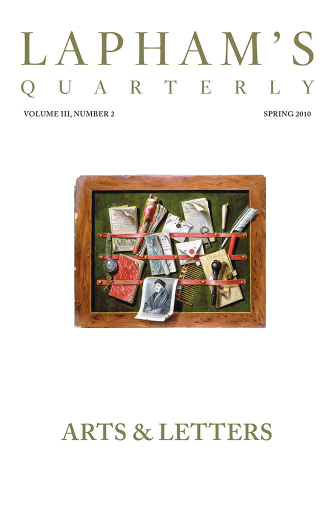Everyone knows what it is to start a piece of work, either intellectual or muscular, feeling stale—or oold, as an Adirondack guide once put it to me. And everybody knows what it is to “warm up” to his job. The process of warming up gets particularly striking in the phenomenon known as second wind. On usual occasions we make a practice of stopping an occupation as soon as we meet the first effective layer (so to call it) of fatigue. We have then walked, played, or worked “enough,” so we desist. That amount of fatigue is an efficacious obstruction on this side of which our usual life is cast. But if an unusual necessity forces us to press onward, a surprising thing occurs. The fatigue gets worse up to a certain critical point, when gradually or suddenly it passes away and we are fresher than before. We have evidently tapped a new level of energy, masked until then by the fatigue-obstacle usually obeyed. There may be layer after layer of this experience. A third and a fourth “wind” may supervene. Mental activity shows the phenomenon as well as physical, and in exceptional cases we may find, beyond the very extremity of fatigue-distress, amounts of ease and power that we never dreamed ourselves to own—sources of strength habitually not taxed at all, because habitually we never push through the obstruction, never pass those early critical points.
For many years I have mused on the phenomenon of second wind, trying to find a physiological theory. It is evident that our organism has stored-up reserves of energy that are ordinarily not called upon but that may be called upon: deeper and deeper strata of combustible or explosible material, discontinuously arranged but ready for use by anyone who probes so deep, and repairing themselves by rest as well as do the superficial strata. Most of us continue living unnecessarily near our surface. Our energy budget is like our nutritive budget. Physiologists say that a man is in nutritive equilibrium when day after day he neither gains nor loses weight. But the odd thing is that this condition may obtain on astonishingly different amounts of food. Take a man in nutritive equilibrium, and systematically increase or lessen his rations. In the first case he will begin to gain weight, in the second case to lose it. The change will be greatest on the first day, less on the second, less still on the third, and so on, till he has gained all that he will gain, or lost all that he will lose, on that altered diet. He is now in nutritive equilibrium again, but with a new weight, and this neither lessens nor increases, because his various combustion processes have adjusted themselves to the changed diet. He gets rid, in one way or another, of just as much N, C, H, etc., as he takes in per diem.
Just so one can be in what I might call efficiency equilibrium (neither gaining nor losing power once the equilibrium is reached) on astonishingly different quantities of work, no matter in what direction the work may be measured. It may be physical work, intellectual work, moral work, or spiritual work.
Of course there are limits: the trees don’t grow into the sky. But the plain fact remains that men the world over possess resources that only very exceptional individuals push to their extremes of use. But the very same individual, pushing his energies to their extreme, may in a vast number of cases keep the pace up day after day, and find no reaction of a bad sort, so long as decent hygienic conditions are preserved. His more active rate of energizing does not wreck him; the organism adapts itself and, as the rate of waste augments, augments correspondingly the rate of repair.
From “The Energies of Men.” James studied chemistry and anatomy at Harvard University and later joined the faculty as a lecturer in physiology. He conducted laboratory research on the relationship between perception and sensation, developing the theory that emotion arises in response to physiological changes caused by external events. “A man who energizes below his normal maximum fails by just so much to profit by his chance at life,” James writes elsewhere in this essay. “We need a particular spur or effort to start us upon inner work; it tires us to sustain it.”
Back to Issue





